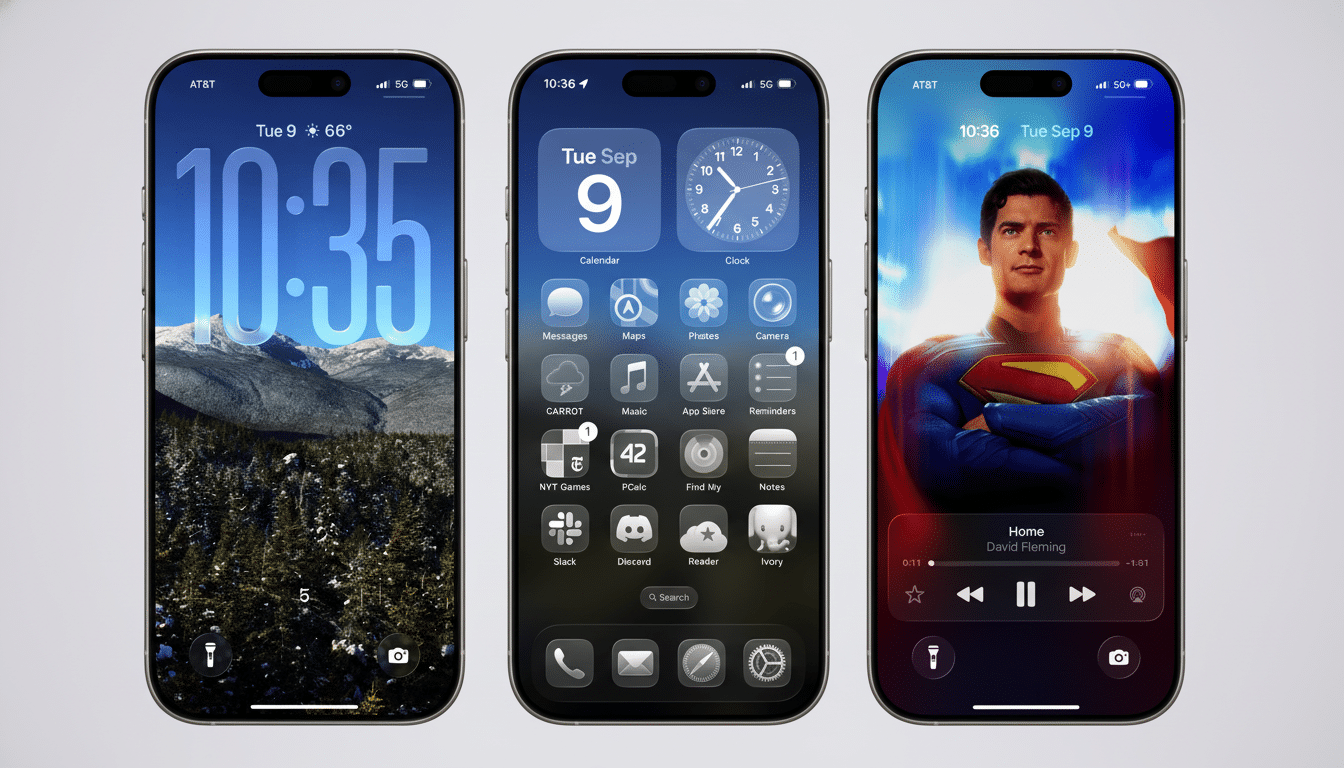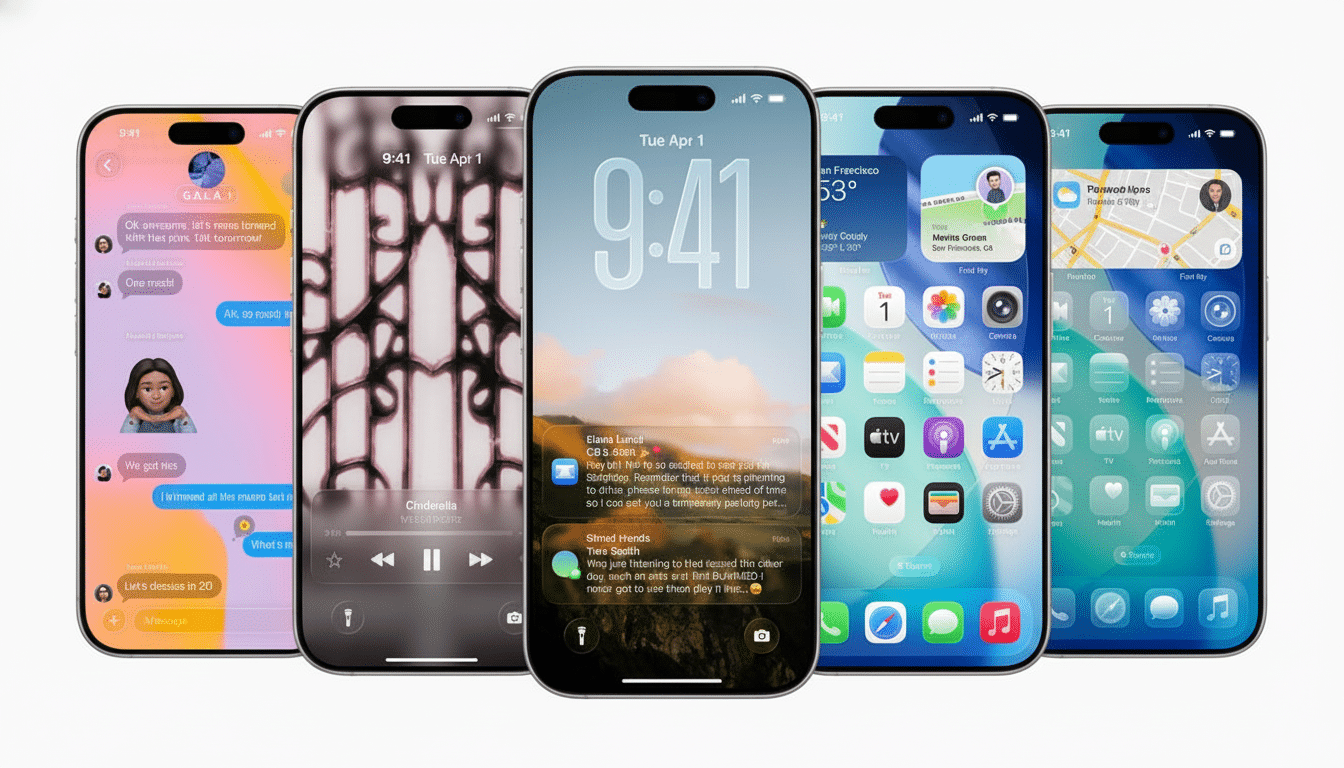New iPhones also means a new iOS, and Apple’s next big update is not far off. iOS 26, introduced at WWDC, is a larger swing than we’ve see in recent years as Apple has presented a wide visual overhaul and on-device intelligence. When will the rollout begin, how can you get it on your phone the instant it lands, and what do you need to know before updating?
When to expect the iOS 26 release
Apple tends to ship the final public release of iOS in the short period between revealing its flagship iPhone and customers hands-on with it. That playbook isn’t changing. If you’re following Apple’s schedule, the download shows up for everybody during that launch week, through a staged and global rollout that can take a couple of hours to surface on every device.

Before release, Apple provides a Release Candidate to developers and public beta testers through the Apple Developer Program and the Apple Beta Software Program. If you already are on that track, you’ll either get one final little update on day one, or your RC build will be the exact same build that rolls out to everyone else.
How to download iOS 26 on release day
Back up before you update. Back up using iCloud Backup or connect to a Mac and use Finder (or a PC with iTunes). Make sure your Wi‑Fi is strong and the battery is strong or connect power plug. Apple’s servers are busy when something is new, so it can help if the progress of the download crawls, or the update doesn’t appear immediately.
On your iPhone, head to Settings > General > Software Update. If you’ve been testing prerelease software, tap “Beta Updates” and flip the switch to “Off” to view the publicly available build. Tap “Update Now” when you see that iOS 26 is available. If over‑the‑air is a failure, you can use a computer to update, connecting your iPhone and HomePod, using “Check for Update” in Finder or iTunes; this can be a more assured method when Apple’s CDN is buckling under demand.
Will your iPhone be able to run iOS 26?
Recent devices and the popular midrange pick all are on Apple’s support list. It’s slated to be available for iPhone SE (second generation and later), the entire iPhone 11 family and every numbered flagship since, including mini, Plus, Pro and Pro Max models across the iPhone 12, 13, 14, 15 and 16 lines, in addition to the 16e. If you have a device that predates those cutoffs, you have now been warned that you’re not getting the update.
What’s new that actually might make you upgrade
Design takes center stage. Apple’s “Liquid Glass” design language brings new life to icons and interface elements with a glossy depth and fluid motion that leaves the Home Screen and system UI looking new, but not at the expense of clarity.

Core apps get meaningful upgrades. Photos now does a cleaner job of jumping between your full library and custom albums, and Phone streamlines Ddiy,trimmed actions. Messages gets some new group chat tools, including custom backgrounds and built‑in polls, and a new Games app cobbles scores, friend comparisons and dedicated Apple Arcade hub in one spot.
The apple intelligence is spreading throughout the system. Real-time translation for Messages and phone calls breaks down language barriers on the fly. You can search for old threads with natural language queries, skim A.I.-generated voicemail summaries and dabble with creativity tools like the Image Playground or your own custom “Genmoji” that combines multiple emoji into a single reaction. Like previous AI features, certain functions may only work with newer hardware and supported languages, according to Apple’s compatibility notes.
Adoption and rollout realities
Launch‑day demand is intense. Apple’s update servers are typically slammed when new versions go live, so early downloads may crawl. Historical dashboards from analytics companies like Mixpanel indicate that large iOS updates usually reach about 20-30% of active devices in the first week, and that momentum picks up after early bugs are squashed and automatic updates take effect.
Pro tips to make upgrading easier
Free some space: over‑the‑air packages require a lot of storage during installation. Maintain at least a reasonable cushion rather than operating too close to the bone. Turn off Low Power Mode for now to avoid slowing down the process, and leave your iPhone plugged in. If you don’t immediately see the update, though, you can check by refreshing Software Update after a few minutes — rollouts are staggered.
If you depend on mission‑critical apps (banking, point‑of‑sale, VPNs, enterprise MDM), make sure they are compatible with the developer’s release notes for Preview. If your device is mission critical for work, some IT admins say wait until the first minor patch.
Bottom line: iOS 26 will be here around the same time as Apple’s new iPhones, and getting it the moment it becomes available is easy. Step back, plug in, check Software Update, and get ready for a more fluid‑looking iPhone with smarter, more capable everyday tools.

